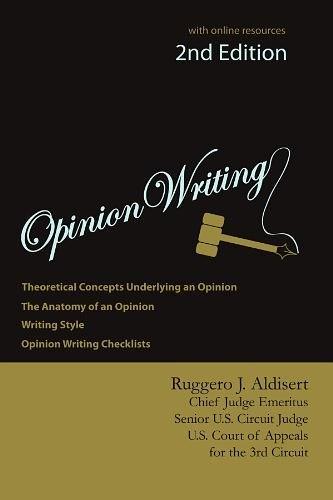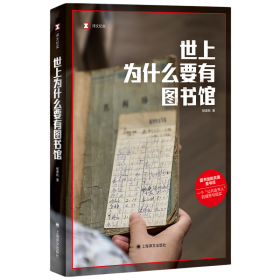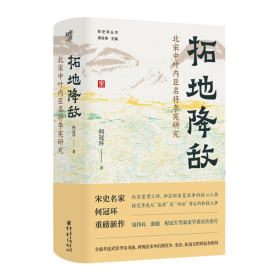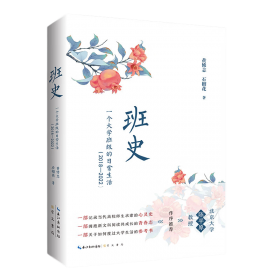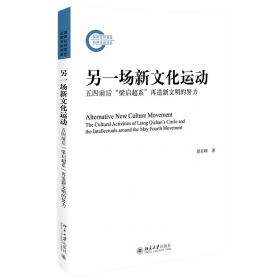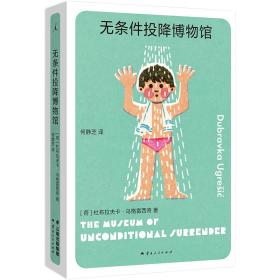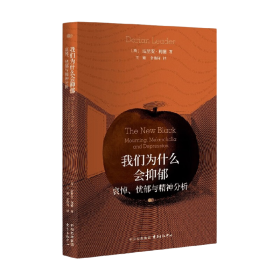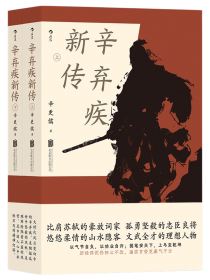Opinion Writing 2nd Edition
ISBN:
9781438982281
装帧:
其他
-
This second edition of the original 1990 version of Opinion Writing seeks to advise judges on how to improve their writing skills in justifying their decisions. We follow the common law tradition in stating written reasons for our decisions. The common-law tradition demands no more than a clear statement of reasons. The judicial process expects no more. The brief reader and the opinion readers deserve no less. The ability to write clearly and memorably may or may not sometimes be a gift granted at birth. Without question, it can be perfected by studious attention and constant application, much like a muscle that is strengthened by proper and continuing exercise. To do this -- the writing and editing and rewriting required for polished text -- takes time. Time, unfortunately, is severely rationed these days. Even with the word processors, the high-speed laser printer and the computer-contained dictionary and thesaurus, the modem era of the law does not permit the leisurely pace that our forebears apparently enjoyed. As this book develops in detail, every opinion should ideally begin with a clear statement of the flash point of the controversy between the litigants. Judges must identify precisely where the litigants differ and tell the reader whether their clash concerns the choice of the controlling legal precept or the interpretation of an agreed-upon precept or, if there is no dispute over either, a statement that the controversy concerns the application of settled law to settled facts. Having identified these contours, we should then proceed to resolve the difficulty and explain why one choice, or one interpretation or given application, is preferred to another. This discussion explaining the reasons for the decision, the ratio decidendi, must offer more clarity. There must be more exposition of analysis and more selective use of precedent. Lawyers and judges both have an obligation to evaluate the effect of previous cases and to decide which citations they will authenticate and which they will consider simple duplicates, which of them are necessary to the argument and which of them only validate obvious statements of reason In sum, this how-to book guides judges to recognize what critics say about our work, and teaches how judicial opinions can be improved.
-
内容简介:
This second edition of the original 1990 version of Opinion Writing seeks to advise judges on how to improve their writing skills in justifying their decisions. We follow the common law tradition in stating written reasons for our decisions. The common-law tradition demands no more than a clear statement of reasons. The judicial process expects no more. The brief reader and the opinion readers deserve no less. The ability to write clearly and memorably may or may not sometimes be a gift granted at birth. Without question, it can be perfected by studious attention and constant application, much like a muscle that is strengthened by proper and continuing exercise. To do this -- the writing and editing and rewriting required for polished text -- takes time. Time, unfortunately, is severely rationed these days. Even with the word processors, the high-speed laser printer and the computer-contained dictionary and thesaurus, the modem era of the law does not permit the leisurely pace that our forebears apparently enjoyed. As this book develops in detail, every opinion should ideally begin with a clear statement of the flash point of the controversy between the litigants. Judges must identify precisely where the litigants differ and tell the reader whether their clash concerns the choice of the controlling legal precept or the interpretation of an agreed-upon precept or, if there is no dispute over either, a statement that the controversy concerns the application of settled law to settled facts. Having identified these contours, we should then proceed to resolve the difficulty and explain why one choice, or one interpretation or given application, is preferred to another. This discussion explaining the reasons for the decision, the ratio decidendi, must offer more clarity. There must be more exposition of analysis and more selective use of precedent. Lawyers and judges both have an obligation to evaluate the effect of previous cases and to decide which citations they will authenticate and which they will consider simple duplicates, which of them are necessary to the argument and which of them only validate obvious statements of reason In sum, this how-to book guides judges to recognize what critics say about our work, and teaches how judicial opinions can be improved.
查看详情

 占位居中
占位居中

